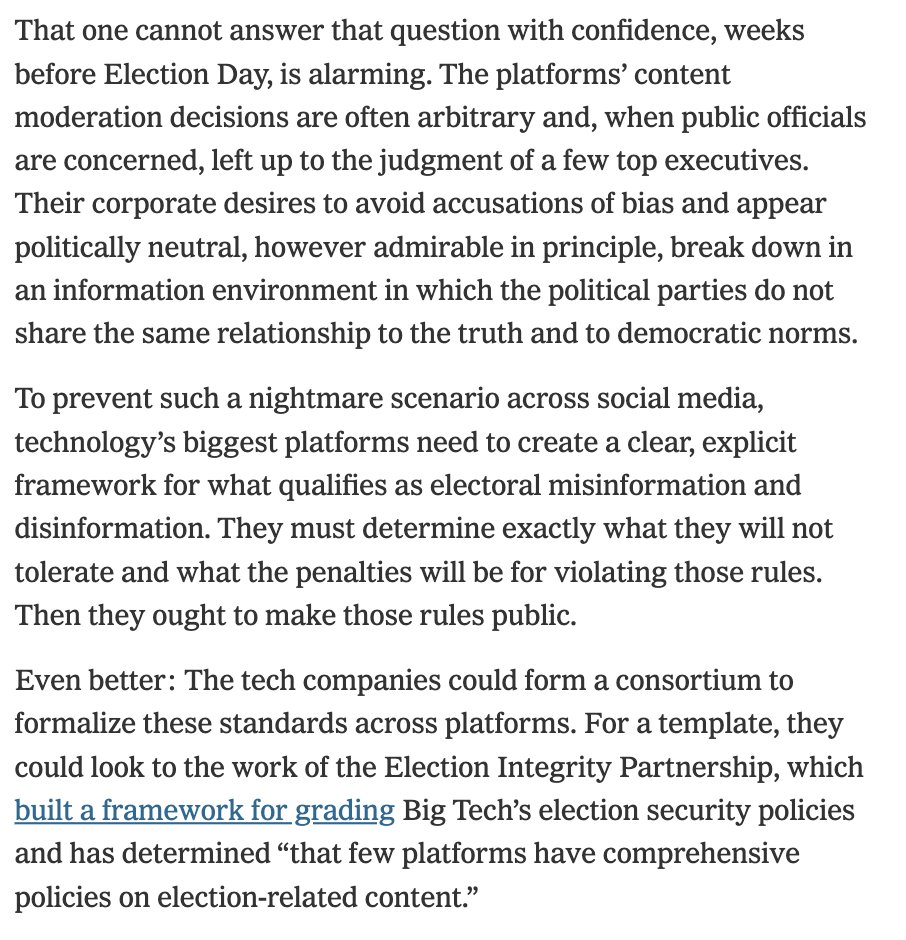
i would treat trump's tweets right now not as disinformation designed to influence the media's count-the-votes reporting - too late for that - but to incite his supporters (to violence? to the streets? to find ways to end vote counting?) and, as always, to salve his wounded ego.
in that sense, particularly the incitement part, it is imperative for the platforms to be on top of this QUICKLY and continue to consider tougher measures than mere labeling.
but the clear political message is this: trump knows he has lost.
• • •
Missing some Tweet in this thread? You can try to
force a refresh






